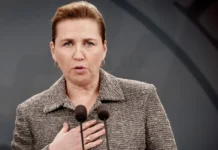Kuwait: Kuwait affirmed that it attaches great importance to the issue of the advancement of Kuwaiti women, their empowerment and the promotion of their rights, in line with the constitutional provisions and in line with the goals of sustainable development 2030.
This came in Kuwait’s statement delivered by the First Secretary of its permanent delegation to the United Nations, Fahd Hajji, yesterday evening, Friday, at the Security Council’s open debate on women, peace and security.
Hajji said that Kuwait is keen to continue its endeavors and efforts to empower Kuwaiti women and advance their civil, political, economic and social rights.
He explained, “Kuwait continues to strive to achieve gender equality and empower women and girls,” recalling “with all respect, respect and gratitude the sacrifices of Kuwaiti women. Our history testifies that it faced the occupation with courage and courage until the right returned to its owners and my country was liberated in accordance with Security Council resolutions.”
He added that Kuwaiti women played an important role in the reconstruction and construction phase and the renaissance of society and were an essential element in Kuwait’s efforts to confront the repercussions of the (Covid-19) pandemic.
He continued, “Our world today faces great, complex and interrelated challenges, including limiting the spread of epidemics, natural disasters, climate change, the continuation of armed conflicts, wars, economic and financial crises, food insecurity and famine in some countries, and other major challenges.”
Hajji pointed out that all these challenges have direct impacts on the lives of hundreds of millions of people, especially women and girls.
He stressed, “The advancement of women and their empowerment is a very important priority issue on the agenda of the international community, and in light of this deserved attention to the issue of women’s empowerment, we still see that there is more that can be done to empower them in various fields.”
He stated that Security Council Resolution 1325, which established the agenda of women, peace and security, constituted a fundamental pillar in multilateral international action and an important tool for enhancing the effectiveness of national, regional and international efforts in the prevention and settlement of conflicts, the renaissance of societies and the achievement of progress in the social, economic, developmental and political fields.
He pointed out that history testifies that women are always the first victims of wars, conflicts and security, social, economic, political and even climatic disturbances. Despite this, women have proven and proved over time and at all times, including during armed conflicts, that their amazing capabilities and abilities to withstand in the face of difficulties are present and sustainable.
Hajji pointed out that women played important and essential roles in conflict prevention and resolution, peacekeeping, peace building, political processes, humanitarian responses, reconciliation efforts, mediation, reconstruction and recovery after conflicts and wars.
He explained that despite the commitments contained in the ten resolutions issued by the Security Council regarding the agenda of women, peace and security, it is important to note that the agenda of this file still needs more commitments and political will to ensure its full implementation, especially within the scope of the work of the Security Council.
Hajji expressed his belief in the important role that women play in various fields, stressing that their participation in political and peace-building processes has a positive impact on the outcomes and results of those processes.
He stated that reports and statistics in this regard show that women’s participation increases the likelihood that peace agreements will last for more years and make them more sustainable, stressing the need for women’s empowerment in crises and conflicts to be one of the most important tools in the peace process. Hajji reiterated that Kuwaiti women’s gains are increasing year after year in this context, especially since they gained their political rights by running and being elected in 2005.
He explained that Kuwaiti women have contributed to political decision-making over the years through holding many leadership positions, including minister, member of the National Assembly, undersecretary of the ministry, director of the commission and ambassador. “We recently witnessed a democratic wedding in my country, represented in the Kuwaiti National Assembly elections, in which Kuwaiti women succeeded in returning to the parliament seat again after two women won in those elections, and two women were appointed in the last government formation,” Hajji said.
He pointed out that, based on the directives of the political leadership in Kuwait, the first ministry in the history of the State of Kuwait was recently established that cares about women and childhood to build a balanced and coherent society based on respect for women’s rights and the protection of children against any violation, exploitation or abuse of them in any way, and to enhance the role of Kuwaiti women in building The country’s renaissance and future and work to empower it in various fields.
Hajji touched on an important part of the report of the United Nations Secretary-General on women, peace and security issued this month, which relates to the Security Council’s handling of the women, peace and security agenda. The report indicates that in 2021, 69 percent of Security Council resolutions included references to women, peace and security, which constitutes an increase 5 percent higher than it was in 2020.
He added that an unprecedented number of women gave briefings to the Security Council in 2021, where 62 women from civil society were invited to give briefings to the Council, compared to 25 women from civil society between 2000 and 2015.
Hajji stressed that this important progress is welcome and credited to the member states that contributed to its achievement, expressing hope to continue this development to ensure that women’s voices reach and their continued effective participation in the work of the Council.
He expressed pride in seeing the team of the sister Emirates, the Arab representative in the Security Council, led by a woman and the membership of a distinguished constellation of diplomats, praising in the same context the exceptional efforts of this team in conveying the voice of the Arabs to the Council, including the voice of Arab women.


